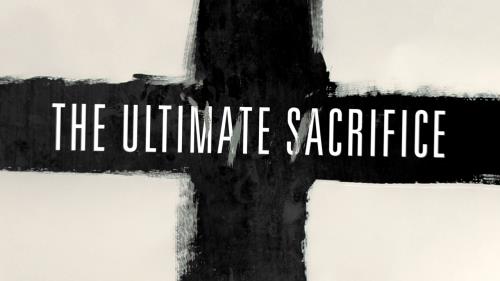-
Jesus, Barnabas And Pontius Pilate Series
Contributed by Tim Smith on Nov 28, 2017 (message contributor)
Summary: In our Scripture today, we have Jesus bound by the Sanhedrin, convicted of blasphemy and sentenced to death but there’s one problem: only Rome can put someone to death. So after receiving 40 lashes, Jesus is taken before the Roman governor Pontius Pilate
Here is a criminal and murderer who is one of the zealots leading an insurrection against the Romans. Now in the time of the Passover, it was the custom of Pilate to release one prisoner to the Jewish people. He has two prisoners before him: Jesus and Barrabas. And both of them are accused of leading an insurrection. Both are accused of wishing to be king of the Jews. Pilate turns to the people and asks, Which of these do you want me to release to you? Is it Barrabbas who has robbed and murdered or Jesus of Nazareth who has taught people to follow God, loved the outcasts and downtrodden and healed the sick and the maim and given sight to the blind. Which if these two do you want me to release to you?
Pontius Pilate expects the people to choose Jesus but much to his surprise they chose Barrabbas and because of that he is released and Jesus is taken in his place. By that afternoon when Barabbas should have been hanging on the cross, Jesus dies there in his place. Barabbas becomes the first sinner for whom Jesus dies. This becomes a picture of the work of Christ’s atonement on the cross. This is what theologians call the substitutionary theory of the atonement. Picture of crucifixion. That is, Jesus takes the place of one sinner. Jesus takes the punishment and dies in the place of one who deserved to die. This is also what Jesus has done for all of us. Christians believe that we have all sinned against God and because of that we have been alienated or separated from God. And the punishment of sin against God is death. “The way of sin is death.” Romans 5:12 But God seeks to close that gap even though our sins against God deserves punishment. God considers us his children and does not want us to be eternally separated but rather to be reconciled to Him. And for this to happen, Jesus must die in our place. This is the theory of substitutionary grace that Jesus suffers and dies on the cross for the sins of human kind. He pays a price he did not owe and as a result we receive a grace we did not deserve.
It is hard for us to understand sometimes. When we look in the mirror, we really don’t see ourselves as such bad people. Bur every now and then we do something that is so awful and we feel so ashamed that we dare not tell anyone. We live under the burden of that guilt and emotional pain and we realize we can really do nothing to alleviate it or remove it. But then we look at the cross and we realize that a price was already paid for us.
Tony Campolo writes in his book, “Speaking My Mind”, “Every time I sin, at that very instant Jesus groans at Calvary. Even as I sin today, He experiences the agony of ingesting my sin into Himself in His eternal now, as He hangs spread eagle on the tree back there and then. This is why it says in Hebrews 6: 6 that when we sin, we crucify Him right now. While spending a few days as the religious-emphasis-week speaker on the campus of a Christian college, I talked with a senior who was quite cavalier about the sins in his life. He told me about having an affair with a married woman. Then he said, “Whenever I commit sin, I remember that Jesus took the punishment for that sin back there on the cross.” In response, I said, “The next time you’re in bed having sex with your lover, I hope you can hear the screams of Jesus from the cross; because at that very moment Jesus is reaching across time and absorbing into His own body the very sin that you are committing there and then. The Jesus who hates sin becomes the sinner that you are. The innocent Jesus becomes the adulterer you are, because in His eternal now, He becomes everything about you that He hates…..all of this should provide a great impetus for living the holy life.” It is when that we are able to see and experience the cost of that grace that we begin to serve God with humble gratitude and long within our hearts never sin again. And yet because of our humanity, we will sin again and call upon the grace of God in our lives. We see ourselves in Barabbas and we walk away free from our sin while an innocent man takes our place.

 Sermon Central
Sermon Central



